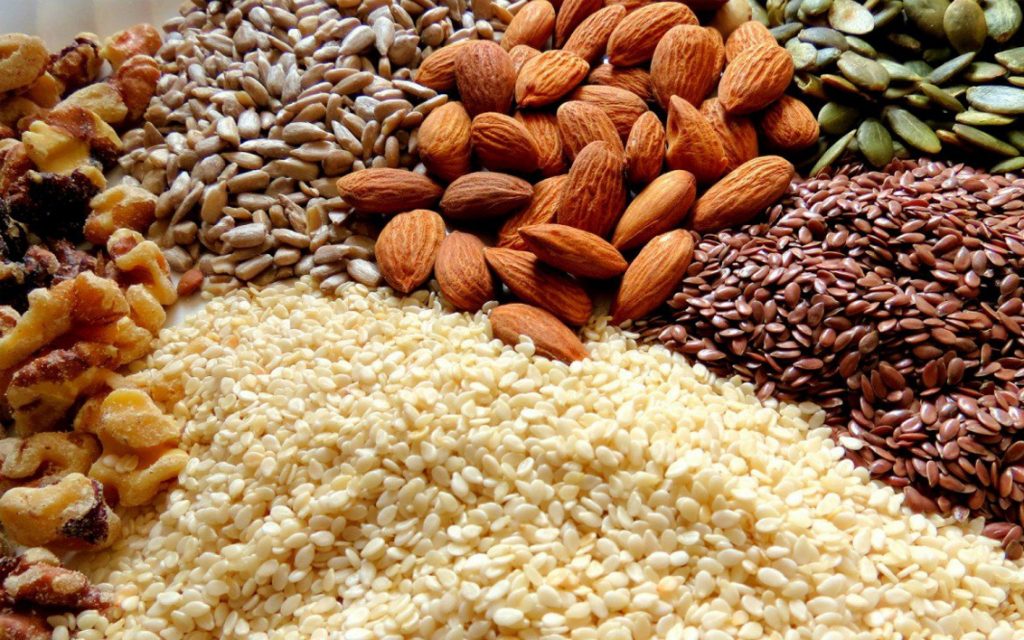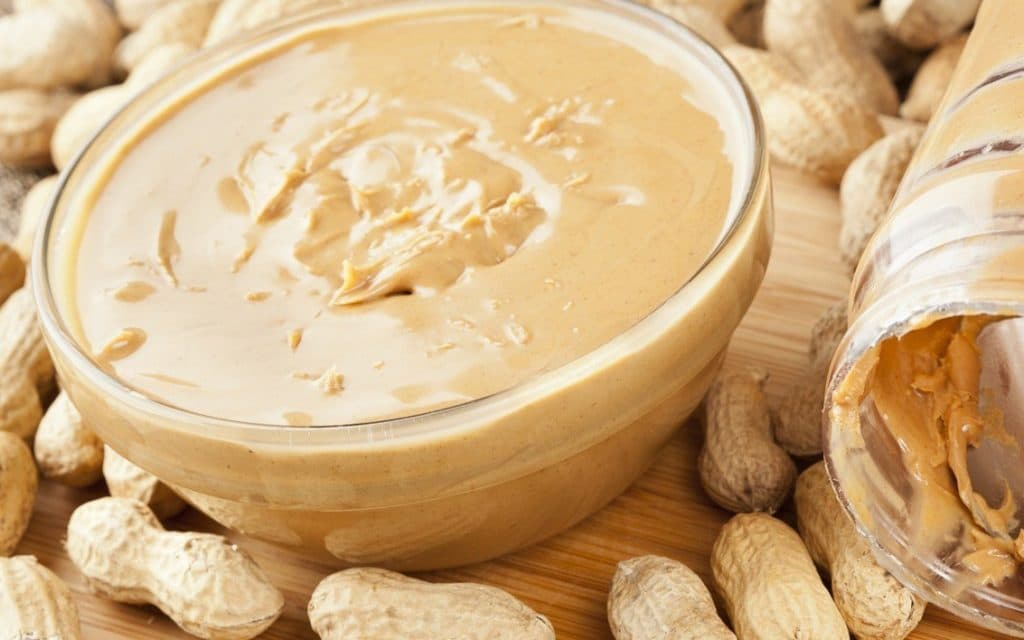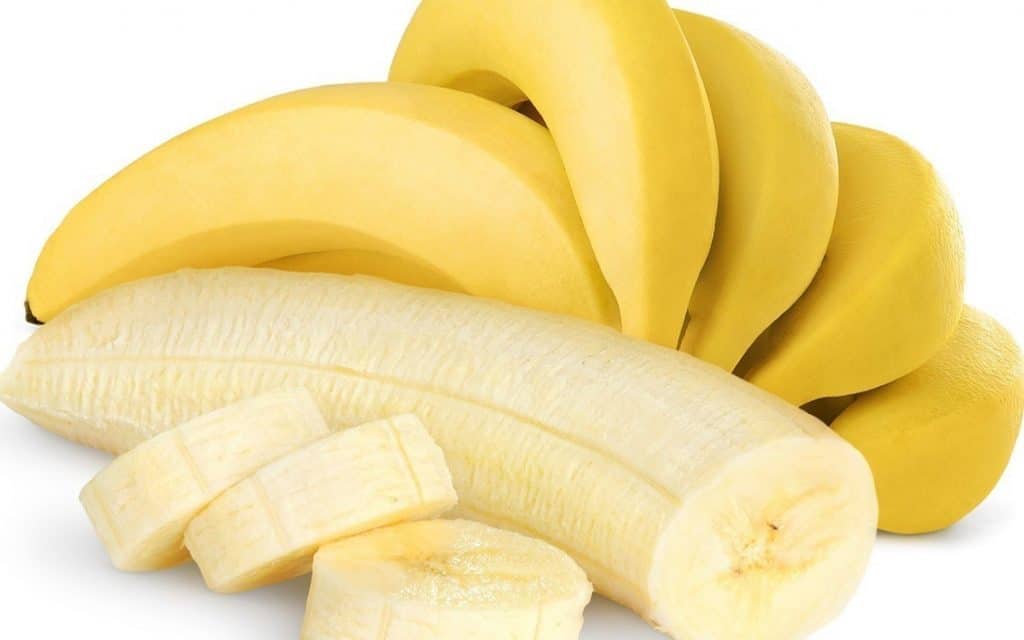8. NUTS AND SEEDS
 The next time you’re feeling peckish during the middle of the day, grab a handful of nuts or seeds instead of something sweet and fast burning. Although high in fats (particularly healthy unsaturated), most nuts are nutrient dense and contain beneficial antioxidants and protein. The U.S. Food and Drug Administration has stated that, “Eating 11⁄2 ounces per day of most nuts as part of a diet low in saturated fat and cholesterol may reduce the risk of heart disease.” On the FDA’s list of most beneficial nuts are almonds, hazelnuts, pecans, some pine nuts, pistachio nuts and walnuts. For measurement purposes, 11⁄2 ounces equates to between 30 and 36 almonds.
The next time you’re feeling peckish during the middle of the day, grab a handful of nuts or seeds instead of something sweet and fast burning. Although high in fats (particularly healthy unsaturated), most nuts are nutrient dense and contain beneficial antioxidants and protein. The U.S. Food and Drug Administration has stated that, “Eating 11⁄2 ounces per day of most nuts as part of a diet low in saturated fat and cholesterol may reduce the risk of heart disease.” On the FDA’s list of most beneficial nuts are almonds, hazelnuts, pecans, some pine nuts, pistachio nuts and walnuts. For measurement purposes, 11⁄2 ounces equates to between 30 and 36 almonds.
9. Peanut Butter
 Peanut butter is high in calories, in moderation, it can help you control hunger and manage your weight. But the truth is, not all peanut butter are created equal. Some popular brands are actually the worst, with most containing lot of sugar and variety of hydrogenated oils, it’s no wonder it has been classed as unhealthy. Always check the ingredients list, try to choose an organic and natural variety of peanut butter with no added sugar.
Peanut butter is high in calories, in moderation, it can help you control hunger and manage your weight. But the truth is, not all peanut butter are created equal. Some popular brands are actually the worst, with most containing lot of sugar and variety of hydrogenated oils, it’s no wonder it has been classed as unhealthy. Always check the ingredients list, try to choose an organic and natural variety of peanut butter with no added sugar.
To keep calories in check, be sure to watch your serving size and stick to no more than two tablespoons.
10. Bananas
 Often shunned for their high sugar and carb content, bananas are an extremely healthy fruit that everyone can enjoy. A medium banana has 110 calories and 14 grams of sugar, almost same calories, carbs and fiber as an apple.
Often shunned for their high sugar and carb content, bananas are an extremely healthy fruit that everyone can enjoy. A medium banana has 110 calories and 14 grams of sugar, almost same calories, carbs and fiber as an apple.
Bananas’ high levels of potassium help lower blood pressure, and bananas are a good source of antioxidants and vitamin C, which can help combat free radicals known to cause cancer. Bananas also have the amino acid tryptophan, which research suggests is linked with preserving memory and boosting mood.
Tip: If you're signed in to Google, tap Follow.









